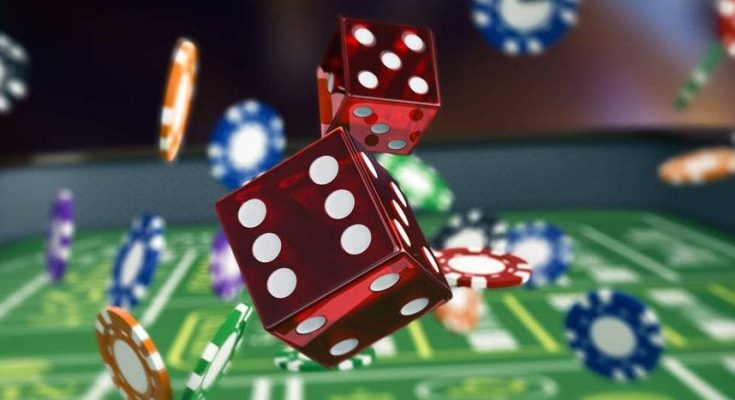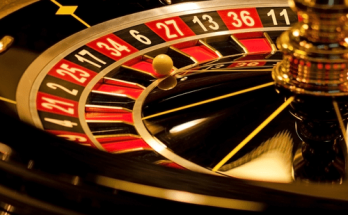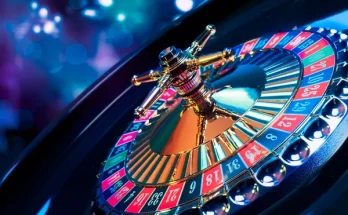When you first visit online platforms like https://megapari-casino.gr/, you’re stepping into an environment meticulously engineered to alter your perception of chance. Casinos masterfully employ psychological strategies, subtly training your brain to dismiss randomness in favor of perceived patterns and control. This expert analysis will delve deeply into these intriguing tactics and unravel how they influence your gaming behaviors.
Understanding the Illusion of Control
The core strategy casinos leverage is the “illusion of control.” Humans naturally seek patterns, predictability, and control, even in purely random scenarios. Casinos capitalize on this innate human trait by presenting gambling environments where players falsely believe they influence outcomes through skills, rituals, or decisions.
Slot machines and table games reinforce this illusion through frequent small wins, near-misses, and interactive elements that encourage the belief your actions directly impact the game’s outcome.
How Slot Machines Manufacture Hope
Slot machines are particularly adept at creating illusions. Despite being fundamentally random due to RNGs (Random Number Generators), these machines often give the player near-misses – symbols lining up almost perfectly but missing by a fraction. Research shows these near-misses trigger brain responses similar to actual wins, reinforcing the player’s conviction that “next time will be different.”
Audio-Visual Reinforcement
Casinos enhance these illusions using carefully designed audio-visual stimuli. Lights, music, and animated effects intensify each near-win, making them emotionally significant events that encourage continued play and belief in an eventual success.
The Psychology Behind Table Games
Table games like blackjack and roulette provide another layer of psychological influence by creating a perception of skill. Players feel more engaged and believe their strategies and decisions significantly affect the game’s outcome, despite underlying probabilities firmly set in favor of the house.
The Gambler’s Fallacy
One of the most influential psychological phenomena is the Gambler’s Fallacy – the erroneous belief that past outcomes influence future events in independent, random processes. Casinos subtly encourage this by displaying histories of past outcomes, suggesting patterns where none exist. For example, roulette tables frequently display previous spins, encouraging players to believe in patterns and adjust their bets accordingly, despite each spin being entirely independent.
Online Casinos and Digital Illusions
Platforms amplify these psychological techniques through digital interfaces. Online casinos utilize sophisticated animations, timely notifications of wins by other players, and dynamic visual effects that heighten excitement and anticipation. These methods keep players engaged and less aware of the inherent randomness.
The Role of Bonuses and Promotions
Bonuses and promotions further enhance the illusion by creating a sense of advantage and strategic play. Players feel they can leverage promotions to increase their odds, neglecting the essential truth of gambling – the odds remain unchanged by promotions. This approach skillfully diverts attention from chance towards a focus on maximizing benefits.
Creating an Environment of Trust
A critical yet subtle casino tactic is fostering trust. Casinos meticulously cultivate reputations of transparency, fairness, and entertainment, convincing players that outcomes are fair but controllable with smart gameplay. Players gradually shift their focus from randomness to their perceived expertise and strategies, underestimating the role of pure luck.
Cognitive Biases and Casino Tactics
Casinos skillfully exploit several cognitive biases. Confirmation bias, for instance, prompts players to remember wins vividly and disregard losses. The sunk-cost fallacy pushes players to continue gambling after losses, believing their luck must eventually change.
Educating Players to Counter Illusions
Understanding these psychological strategies is crucial. Knowledge helps players recognize manipulations, approach gambling responsibly, and maintain a realistic view of probability and randomness. Accepting gambling as entertainment rather than a source of predictable income greatly reduces the risk of falling into harmful gambling habits.
Final Thoughts: Awareness is Key
Casinos don’t cheat – they leverage psychology. Recognizing these tactics doesn’t diminish the enjoyment of gaming but empowers players with awareness. Remembering that chance is the true engine behind gambling outcomes allows you to engage healthily, responsibly, and enjoyably.
In conclusion, casinos excel at training you not to believe in chance through various psychological manipulations and strategies. Being conscious of these tactics helps maintain a balanced perspective, ensuring gambling remains enjoyable rather than compulsive.




